When I came across Steve Thorp’s blog Psycho-Bubble last winter I found a style of writing that was both sincere and explorative, the kind of words that take you along with them and suggest new directions without telling you where to go. In spring we met for a talk about Steve’s counselling practice, psychology and his involvement in the Dark Mountain Project. As with some of my previous conversations about Dark Mountain we share part of it here.
It seems to me that these conversations each have a unique shape and I try to do them justice in the process of turning transcript into written interview. In producing this written version we have exchanged and edited a transcript of a poor quality recording to achieve this final version which we feel reflect a much longer conversation.
JDG: In our earlier conversation you mentioned that finding the Dark Mountain Project tied in with other conversations and collaborations you were pursuing at the time. And I got the sense that you were also going through an important time in transforming your counselling practice. Can you tell me a little more about that time and what you were seeking?
ST: I’d been searching for some kind of place I could feel I’m going with my work. I mean, the move to Pembrokeshire was in the pipeline and I knew that my work as a therapist was going to change because I’d spent the last 5 to 10 years in Banbury building my practice and networks. I was looking for something which was much more integrative and much more contextualised around the kinds of lives we are living.
There’s two things in psychology which I have had a real problem with. One is the determinism in a lot of the field which says “we are like this because we were like that”. Often, it’s childhood traumas that people are talking about, but actually they extend it to everybody, it’s not just the odd child who’s had a really bad or traumatic childhood. And then the other one is this idea how we can all be happy – or should be. That actually this place that we live in, the kind of world that we live in, is somewhere we somehow all can just be happy and that we all should be.
When I went to Uncivilisation it gave me the beginnings of a platform to scream from. Which is where the blogs came from. I mean the first blog had been around for a while – my ‘Lifescape’ blog which is my ‘professional’ one. I had done a lot of the writing around that, but the other one – ‘psycho-bubble’ – sprang directly from Dark Mountain. I wanted it to explore some new ways of expression. It was nice because as a writer it gave me this way of writing that wasn’t academic, and I didn’t have to argue with anybody. So it didn’t have to have polemic in it. I could just say something and see what happened to it. So that’s the starting point.
I think Dark Mountain can be a place – an open space – where I can be uncertain. There’s not many places you can go with yourself as a psychologist and as a poet and an activist. There’s not many places in the world. You can go to psychologists and they don’t really get you as a poet, and if you go to poets they don’t really get you as a psychologist.
JDG: When I studied climate change I went through this experience where the activist in me became disillusioned and I had to learnt to sit with brokenness and helplessness. And talking to people involved in Dark Mountain I’m finding that this seems to happen a lot. It seems like despair is something that you almost have to go through and then at some point you move on. You write about this as well saying despair is a valid response but that we need to move beyond it. How do you see this from psychological perspective?
ST: To me it’s a necessary response. But I don’t see despair as a path to anywhere and I don’t think we have to work through it. There’s a traditional, psychological way of thinking about it: we’re born as children – blank slates – then we’re treated like crap by our parents, and – I’m aware that I’m being a bit stereotypical – but then we internalise it and it becomes our unconscious pain, and we spend the rest of our adult life trying to get over it. If we’re lucky we can “get through” our pain and we end up becoming, you know, whatever we become. It’s an incredibly selfish project. It’s selfish because it makes such big assumptions about our relationships in the early years. I mean, our parents were just young people. If they fucked it up because they were crap at parenting it was because they just took a chance and improvised, you know. They weren’t, most of them, abusive, they were just a bit unsure sometimes like we all were, wanting to do the right thing, even when it was the wrong thing.
So, you know, I don’t think we have to work through any of that, we just have to recognise, in a sense, that despair is just something that is there and therefore it’s a necessary counterbalance to joy. I write about joy and I write about despair, those are the two things I write about. At the same time, there’s so much talk of “happiness” and, you know, I don’t believe that it exists in the way that people talk about it. You know, it’s transient and can’t – shouldn’t – really be sustained.
So despair is necessary but if we stay with it then that’s a problem. So what we do is one of two things. One is we hide in it and work towards this thing called happiness or we wallow in it.
And the other space is the space of joy. So when I’ve been in Pembrokeshire recently, you know, one of the things that happens on almost any evening is that as I drive back home there’s this welling up in me of this kind of feeling of “wow”. What I’m responding to are birds like hawks and buzzards and red kites, and the black sheep and white sheep on the hill and the shadows and the breezes – and, you know, to me that’s incredibly poetic. And it’s material – I’m responding to the material world, you know. I’m noticing it rather than not noticing it – to me that’s the difference. If you get lost in despair then obviously that’s one thing but if you feel it, notice it a bit like a landscape, it allows you to move on.
JDG: You write about three different but related aspects of collapse: economic, ecological and psychological. Financial and environmental problems are often discussed in the media but the psychological dimension of the current crisis is rarely discussed. How do you see the psychological collapse?
ST: The one that nobody talks about is the psychological one, which is why people do kind of understand that we’re fucked, but they don’t really feel they can do anything about it. So we’re aware of it and concerned about it but we don’t quite grasp what it is that we need to do. I mean my parents brought us up in the days when there was the strong possibility of nuclear war, so there was a sense in which they really didn’t know what to do with it, so they just got on with their lives and felt really scared all the time. And I think there’s a sense of that right now.
The problem and the challenge psychologically is actually being awake, you know – it’s actually being awake, seeing things as they are and not shying away from this because we don’t like the implications of it. And probably the reason that people shy away from the things we don’t like is because we’re not going to look at the things we don’t like in ourselves! So we look in the mirror and we don’t actually like what we see and then that leads on, I think… to something about the soul-making stuff.
So what is it that we are doing in our life? Are we actually meeting with anything that’s in our calling? Are we meeting anything that we should be doing? Not from somebody else’s point of view, but from our own point of view. And actually, if we’re not, then it’s no wonder we turn away from other things because, actually, we turn away from ourselves. So that kind of spirals back to the bigger crisis, and of course they’re all linked because you could say the psychological crisis causes all the others or you could say it is the other way around – that actually the economic factors cause the lot. Or you could say the same of the ecological crisis, that it holds the fulcrum of these three. So I’m kind of exploring these – the relationship between those three things.
JDG: That is related to a recurring theme in my conversations about Dark Mountain about the breakdown of meaning or of some of the modern concepts through which we have learned to understand our lives. It seems like our ‘mental infrastructure’ or the concepts that we use to describe the world with are becoming antiquated. Meanings become hollowed out or they’re not actually describing the reality that’s going on around us. So part of our task, and maybe that’s where Dark Mountain is really innovating, is trying to build new concepts and new ideas around how we can best adapt and live in a time of collapse. You mentioned soul-making, that is quite a powerful idea. In a way, soul-making seems like a vital task for anyone going through psychological collapse?
ST: Well, it specifically comes from James Hillman’s work, and a lot of people in the green and radical movements will know James Hillman. He was a disciple of Jung and many of those people have taken Jung’s ideas and literalised them in some new-age spirituality. What Hillman did was to bring soul back to the human kind of experience, but not to say it’s either this thing or the other.
The other part of the soul-making comes from his idea of a metaphor of the acorn. It’s a poetic theory, it’s not meant to read as science or theology. It says, it’s funny how, as we go though our lives, we look back on our lives and often they make sense when we look back on them rather than when we look forward from past experience. So what he’s saying is that it’s not things in our past that determine us. Often, as children we know who we’re going to be and we sort of express this in childish ways. It’s not till we’re thirty or forty or fifty that we actually look back at the childhood and say “oh yeah!”, you know, “oh yeah, I knew that”; or “that’s what I was doing in my family, that’s how I was playing out my role”. So that would be what he might call ‘calling’ or he calls it ‘daimon’ as well – it’s the seed and the source, you know. And the kernel of the seed is the essence of the person.
And he’s not saying that environment doesn’t have an effect on that, and he’s not saying that genetics does not affect it, he’s just says that, you know, when we are actually in our bodies and our minds, then that’s soul manifesting in the world. So soul-making is what we then do with that. So you know, we’ve got all this material which is already there and we’ve got the contexts in which it emerges throughout our life. So soul-making is going to be different for you today than if you got off the bus at somewhere else and gone to another place. Or if I had missed my appointment, you know, your soul-making and mine would take a different track. It’s important, but also it isn’t, because it isn’t the only thing that goes on. And the soul would, in a sense, be the kind of energy that takes us through our life. In relation to vocation and calling, for example, it doesn’t tell us you’re going to be a train driver, it says train driving contains something of your self.
JDG: You also write about ‘wildness’ which is something that often comes up in relation to Dark Mountain. What do you think wildness could mean within the psychology of collapse?
ST: To me what that parenting assumption – attachment theory – does is, it’s another way of civilising people, it’s another way of saying: “what’s the problem?”. And the problem is always parents. So, what’s the task? Getting through the problems my parents gave me. It narrows it down to self healing and seeking out some kind of civilised normality.
I don’t think the task is about parents, the task to me is about the world. It’s about, you know, the broadening of our psychology to realise that actually – let’s go back to the Hillman thing – if we’re already there to start with in some way or other, not naively, you know, but essentially, then the task is a very different one from one that says we can be made right. And to me these assumptions (that’s one of them, there are a number of others) that somehow we’re made by our parents is actually really detrimental. It could stop our wildness, and it makes us blame our parents which is a bad thing anyway for our relationships with people as we get older.
And the other big assumption which is accepted by a lot of people is this – the new age psychologies are full of it, you know, which is basically Cognitive Behavioural Therapy with spiritual knobs on. Basically if you think happy you are happy. Yeah? Or worse, if we want something we just ask the Universe for it and we can have it. And also that somehow there’s something we can do to train our brain to make us happy. And you know, if that’s true it’s really worrying. If it’s true – let’s imagine we could do an experiment, and we took a hundred people and made them happy, and actually the context in which we made them happy is economic collapse. That’s a really bad thing to do, frankly! You know, I think we need to be preparing people psychologically for something different. Not disaster – I’m not sure I think that we’re on the edge of that necessarily – but something that is more realistic or existential, you know, much more! If we could face our day-to-day trials in ways that are grounded and realistic, then we’d probably be better off on that path. So that’s a critique which is emerging. The stuff I am writing around the psychology of uncivilisation is a critique that’s been emerging for some time and it isn’t really anywhere near finished yet.
Wildness is a type of relationship we have with our self and our environment. What it helps me to do is to keep me grounded individually within a world which knows I am an animal. Which gives me a relationship with an animal which is different than that relationship would be if I thought I was superior to it. It’s about saying, you know, these other species are just part of me, not in a kind of spiritual way, but just in a “I am an animal” way – and I’ve evolved to be me and you’ve evolved to be you.
JDG: Another concept that has come up in various conversations is ‘synchronicity’. I have been thinking about how to formulate this in terms of my own experience in being involved in Dark Mountain. It is difficult to pin down but often has seemed like a lot of the stuff I’ve been thinking about pops up in other people’s writings, in conversations or creative projects. Have you had experiences like this and how do you see that from a psychologist’s perspective?
ST: I’ve made two or three really good connections, I mean, not many more than that really, I mean, yourself and there’s an artist called Robyn Woolston, I don’t know if you’ve come across her, in Liverpool. When we were going to Dark Mountain last time, I took a car because I live a long way off and had a convoluted journey, so I offered a lift to somebody if they were coming from the same direction. Robyn and I connected on Twitter and we met at the train station at Petersfield. And since that time, you know, a lot of conversation has been going backwards and forwards. There’s some really interesting stuff she’s doing, completely different from mine. I love the way she constructs her spaces, which is, you know, that is her art! I’m really getting interested in what she does with what she calls her practice; and her generosity of spirit is just so amazing she’s just got amazing openness – she just reaches out to people. So really, in that sense it’s been brilliant.
And another person I met – before Dark Mountain actually – was a guy called Patrick Andrews – an ex-corporate lawyer – and this has also had that kind of ‘meant to be’ feeling. With Patrick and me, its been like one long conversation. We went to the Uncivilisation Festival together last summer and each time we meet seems like a continuation of the last conversation! And although we come from very different places we keep coming across things we have in common – books that have inspired us and ideas.
The other thing that’s extremely good about Dark Mountain is that it’s something I feel I can be involved in but not forever. I can let go of it, whilst in the past I’ve been involved with stuff where I have always had this position. I’ve been involved in something, you know, even quite actively and feel “oh god, I’ve got a responsibility, I’ve got to do this, I’ve got to do that”, you know. And for this I feel as if well, you know, I’ve had a year and, you know, I’ve made connections and been involved in it, it’s sparked me off. I will always acknowledge it.
JDG: So what would you say is the main thing you’ve taken away from your involvement in Dark Mountain?
ST: That last bit about connections and generous people and the ability to be an activist without feeling obligation. I mean, there’s always responsibility if you decide you want to change something or touch someone with what you write or create or speak of, but organisations have a way of drawing me (or rather I have a way of being drawn into them!). Then, in time I find I don’t really want to belong to them anymore because psychologically they’re just like all the other organisations.
Dark Mountain feels different. People don’t judge your motivations for being there. Some of the debates at the Festival and online have been a bit strange sometimes, and frustrating to listen to, but there seems to be an acceptance that that’s OK. I guess that’s what ‘wildness’ is – or ‘uncivilisation’.
Even in the seemingly most sophisticated forums there’s still a tendency for people to have to win an argument – spirit versus science (in Resurgence magazine for example) or right versus left versus centre politically. But most people don’t live their lives like that. We get on with things – with or without our gods – and we know what we like and don’t like, but often if we accept our basic connections with each other and the places we live, we live and let live. I’m not saying that anything goes, but I might be saying that anything goes that doesn’t hurt or oppress anyone or degrade or destroy our environment. And yet that’s such a big ask in the current climate.
And anyway we might not have a choice about all these civilised arguments, which is possibly the point of Dark Mountain anyway. Like most of us, I like a lot of things about ‘civilisation’, but somewhere down the line I know I – we – are going to have to adapt.
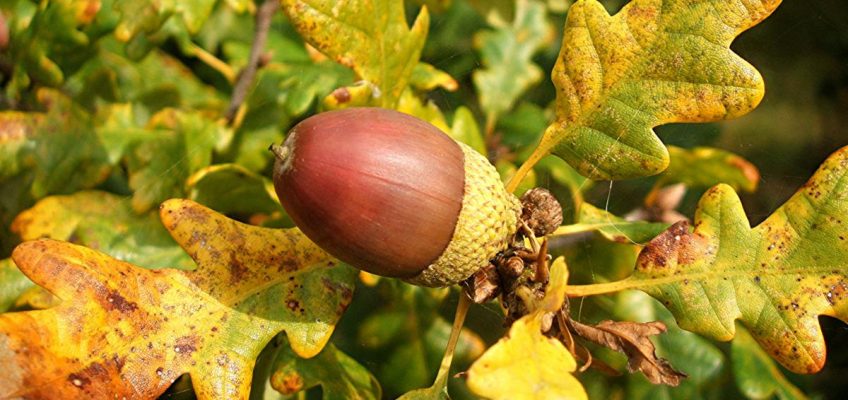
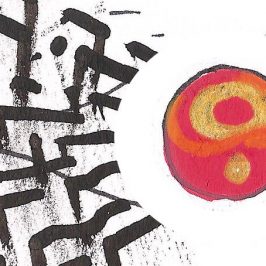
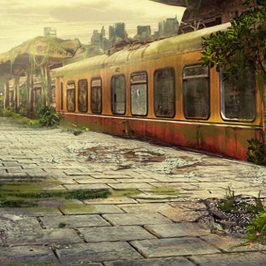
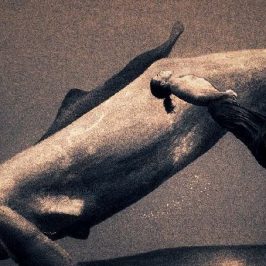
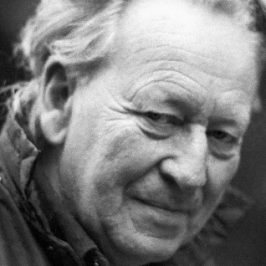


Leave a Reply